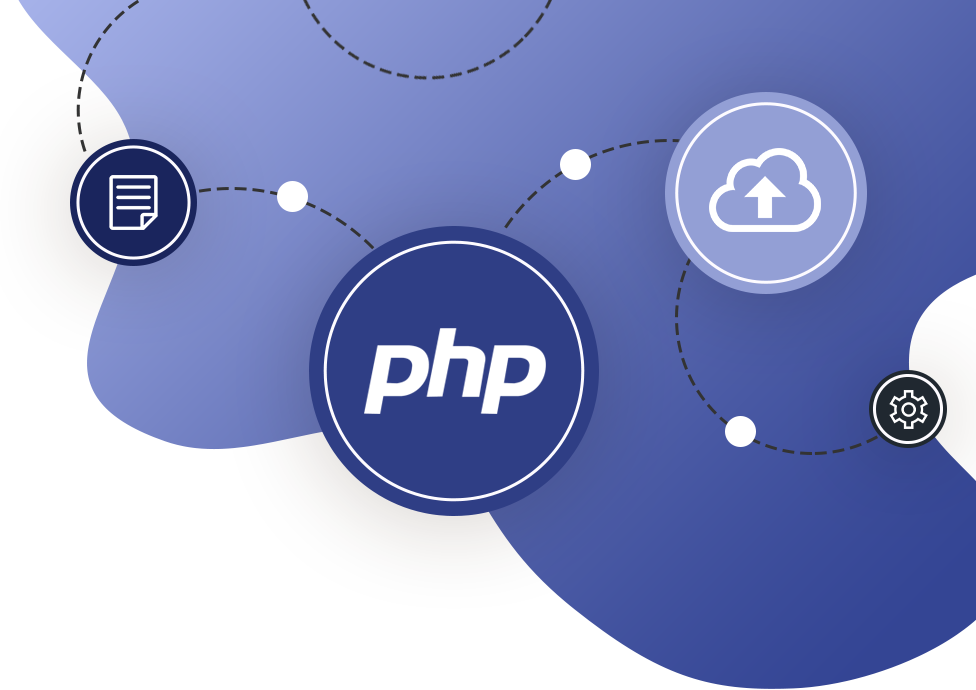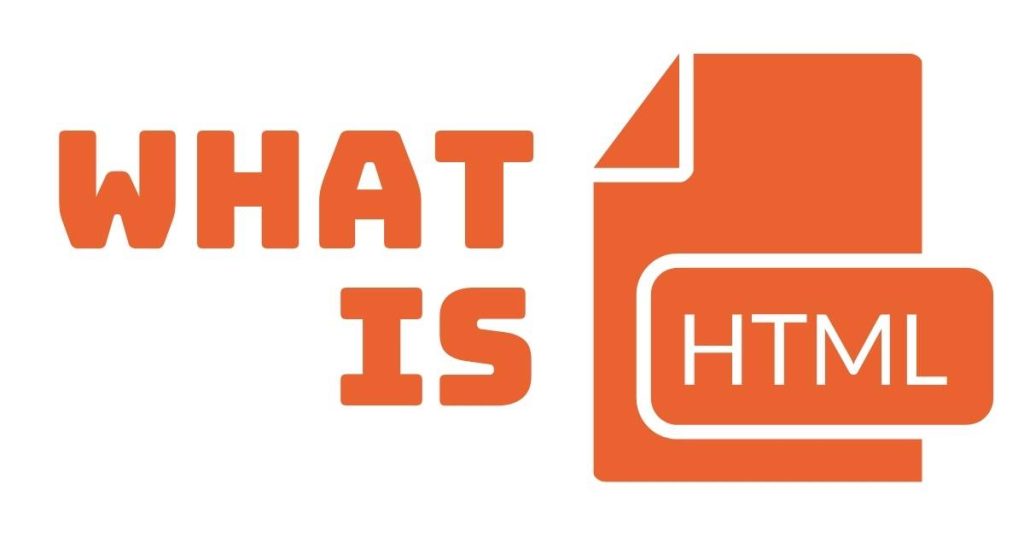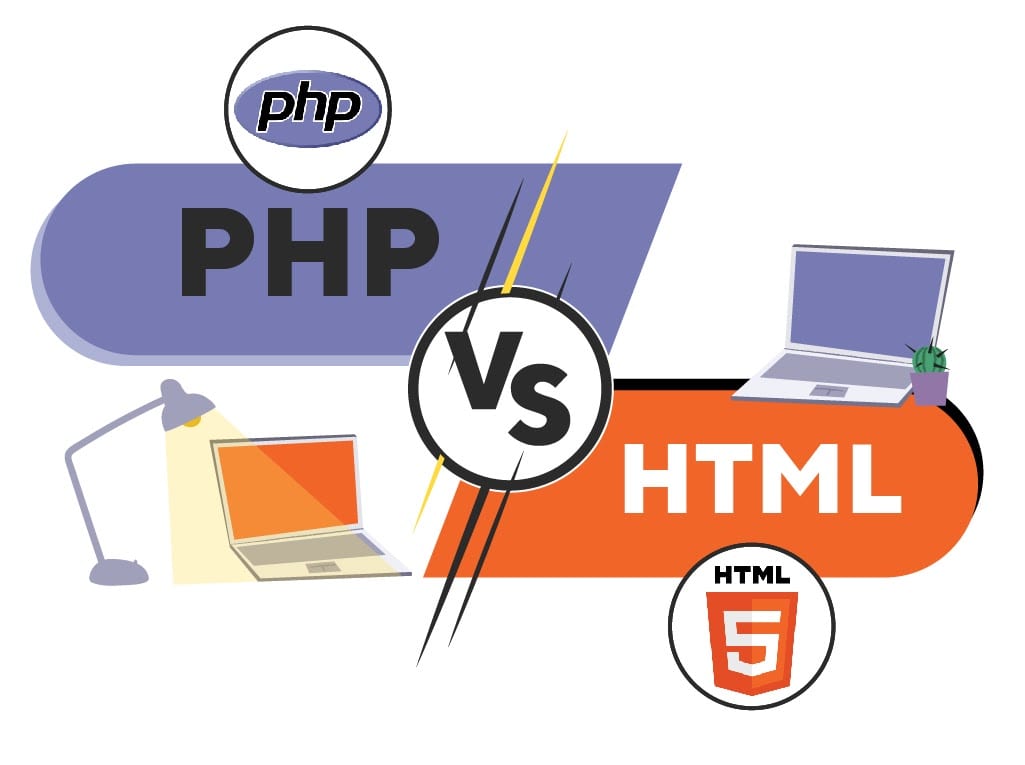PHP vs HTML ~ PHP and HTML are two foundational technologies used for web development, but they serve different purposes and work in tandem to create dynamic websites. Here’s a breakdown of their differences and how they interact:
Table of Contents
What is PHP?
PHP stands for Hypertext Preprocessor. PHP is a server-side, scripting language (a script-based program) and is used to develop Web applications. It can be embedded in HTML, and it’s appropriate for the creation of dynamic web pages and database applications. It’s viewed as a benevolent language with capacities to effectively interface with MySQL, Oracle, and different databases. The primary objective of PHP is to allow web developers to create dynamically generated pages rapidly.

- Here’s a simple PHP example
<?php
echo "Hello, World!";
?>What is HTML?
HTML stands for Hypertext Markup Language. It helps in website creation. It has an influence on the front-end code of nearly every website on the web. The way in which content is displayed in a browser is depicted through HTML. HTML files use “tags”.
- Here’s a simple HTML example:
<!DOCTYPE html>
<html>
<body>
<h1>Hello World</h1>
<p>Hello</p>
</body>
</html> 
Key Features of PHP
erver-Side Scripting: PHP runs on the server, which means it processes data before sending the result (usually HTML) to the client’s web browser. It handles tasks such as form processing, database interaction, and user authentication.
Dynamic Content Generation: PHP enables websites to generate dynamic content. For example, it can pull data from a database, personalize user experiences, or manage login systems.
Open Source: PHP is open-source, which means it is free to use and modify. It has a large community of developers who contribute to its development and provide extensive resources, libraries, and documentation.
Cross-Platform Compatibility: PHP runs on various operating systems, such as Linux, Windows, macOS, and can be integrated with different web servers, including Apache, Nginx, and IIS.
Simplicity and Flexibility: PHP is relatively easy to learn and use, especially for beginners. Its syntax is straightforward, and it integrates seamlessly with HTML, which makes it ideal for web developers.
Key Features of HTML
Markup Language: HTML is a markup language, meaning it uses tags to annotate or “mark up” elements in a document. These tags tell the web browser how to display the content.
Structure and Presentation: HTML provides the basic structure of web pages, including headings, paragraphs, links, lists, and images. However, it doesn’t handle how the content looks (that is controlled by CSS) or how it behaves (that is managed by JavaScript).
Static Content: HTML is primarily for creating static content. Unlike scripting languages such as PHP or JavaScript, HTML does not process data or interact with the hosting server. Once the HTML file is loaded, it remains unchanged unless manually altered.
Cross-Browser Compatibility: HTML is supported by all web browsers, including Chrome, Firefox, Safari, and Edge. While there may be slight differences in rendering, HTML is designed to work across different platforms.
Media Embedding: HTML supports embedding multimedia content, such as images, audio, and video, directly within a webpage using dedicated tags.
PHP vs HTML

| PHP | HTML |
|---|---|
| Developed by Rasmus Lerdorf. | Developed by Tim Berners-Lee. |
| It is used for the development of dynamic websites and dynamic web applications. | It is used to create web pages. |
| PHP codes are dynamic. | HTML codes are static. |
| PHP is used for server-side programming which will interact with databases to retrieve information, storing, email sending, and provides content to HTML pages to display on the screen. | HTML is used for specifying colors, text formatting, aligning, etc. |
| PHP is easy to learn but not as much as HTML. | HTML is very easy to learn. |
| PHP is used for server-side development. | HTML is used for front-end development |
| PHP can’t be used in an HTML file. | HTML can be used in a PHP file. |
| Extensions of PHP are .php, .php3, .php4, .php7 | Extensions of HTML are .html, .htm |
